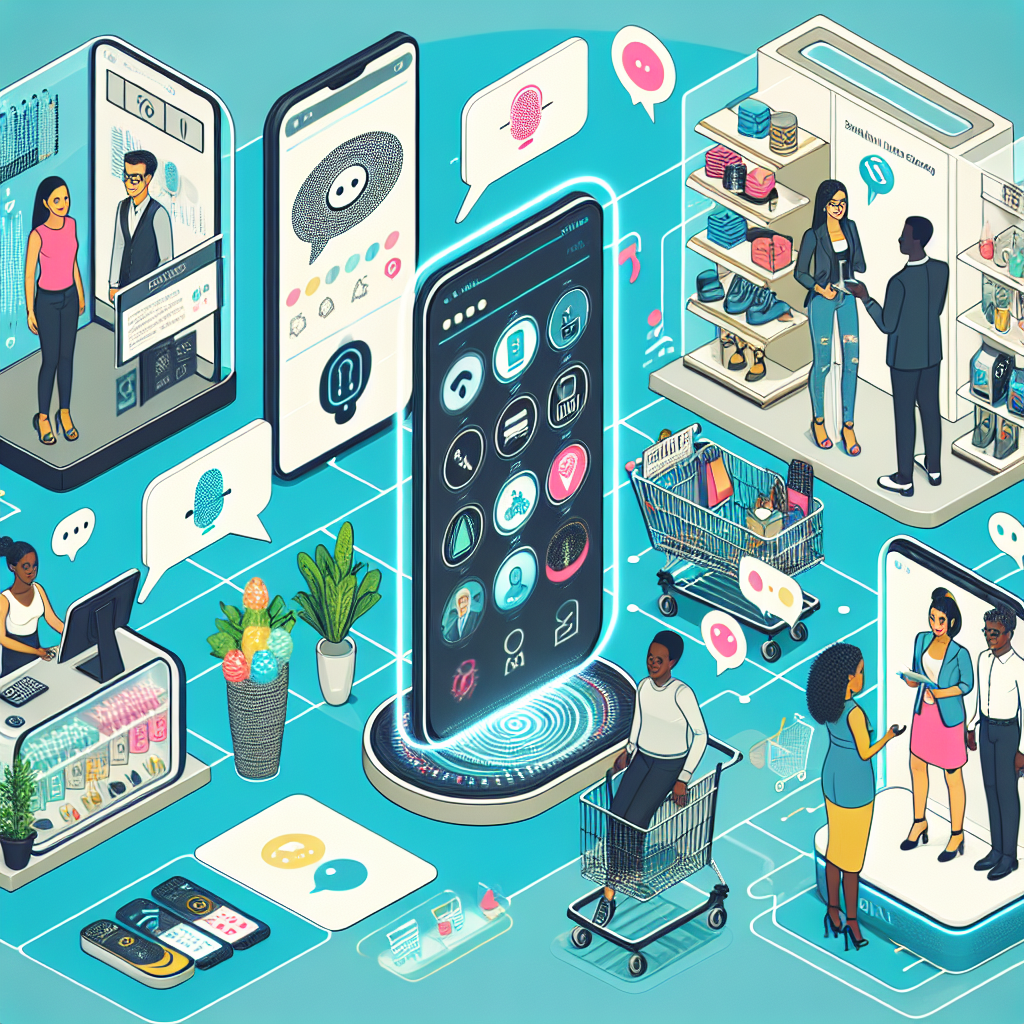Natural Language Processing (NLP) is a field of artificial intelligence that focuses on the interaction between humans and computers using natural language. NLP has made significant advancements in recent years, and its applications in various industries, including retail, are becoming more prevalent. In this article, we will explore the future of NLP in retail and how it is transforming the way businesses interact with their customers.
NLP in Retail
Retail is an industry that heavily relies on customer interactions, whether it’s through in-store interactions, online chats, or social media. With the increasing popularity of e-commerce, businesses are looking for ways to provide a more personalized and seamless shopping experience for their customers. NLP technology can help retailers achieve this goal by enabling them to understand and respond to customer queries in a more natural and efficient manner.
One of the key applications of NLP in retail is chatbots. Chatbots are computer programs that can simulate human conversations and interact with customers in a conversational manner. By using NLP algorithms, chatbots can understand and respond to customer queries, provide product recommendations, and even process orders. This not only improves customer service but also helps businesses save time and resources by automating repetitive tasks.
Another application of NLP in retail is sentiment analysis. Sentiment analysis is the process of analyzing customer feedback, reviews, and social media posts to understand customer sentiment towards a brand or product. By using NLP algorithms, retailers can gain valuable insights into customer preferences, opinions, and trends, which can help them make informed decisions about their products and marketing strategies.
Furthermore, NLP technology can be used to improve search functionality on e-commerce websites. By analyzing the natural language queries entered by customers, retailers can better understand their intent and provide more relevant search results. This not only enhances the shopping experience for customers but also increases the likelihood of them finding and purchasing the products they are looking for.
The Future of NLP in Retail
As NLP technology continues to advance, the future of NLP in retail looks promising. Here are some of the key trends that we can expect to see in the coming years:
1. Personalized Shopping Experience: With the help of NLP algorithms, retailers will be able to create more personalized shopping experiences for their customers. By analyzing customer interactions and preferences, retailers can tailor product recommendations, promotions, and marketing messages to individual customers, leading to increased customer satisfaction and loyalty.
2. Omnichannel Integration: NLP technology can help retailers seamlessly integrate their online and offline channels to provide a consistent shopping experience across all touchpoints. By using NLP-powered chatbots and voice assistants, retailers can enable customers to interact with their brand through multiple channels, such as websites, mobile apps, social media, and in-store kiosks.
3. Enhanced Customer Service: NLP-powered chatbots can provide 24/7 customer support, responding to customer queries and issues in real-time. By leveraging NLP technology, retailers can improve response times, reduce wait times, and provide more accurate and relevant information to customers, ultimately enhancing the overall customer service experience.
4. Predictive Analytics: NLP algorithms can analyze large amounts of unstructured data, such as customer reviews, social media posts, and product descriptions, to identify patterns and trends. By using predictive analytics, retailers can anticipate customer needs, forecast demand, and optimize inventory management, leading to more efficient operations and increased profitability.
5. Voice Commerce: With the rise of voice-activated devices, such as smart speakers and virtual assistants, voice commerce is becoming more popular among consumers. NLP technology plays a crucial role in enabling voice-based interactions between customers and retailers, allowing customers to search for products, place orders, and make payments using their voice commands.
FAQs
Q: How can NLP technology help retailers improve customer service?
A: NLP technology can help retailers improve customer service by automating repetitive tasks, such as responding to customer queries, processing orders, and providing product recommendations. By using NLP-powered chatbots, retailers can provide 24/7 customer support, reduce response times, and deliver more personalized and efficient customer service.
Q: What are some of the challenges of implementing NLP technology in retail?
A: Some of the challenges of implementing NLP technology in retail include data privacy concerns, integration with existing systems, and the need for skilled data scientists and developers. Retailers need to ensure that they have robust data privacy policies in place to protect customer information and comply with regulations. Additionally, integrating NLP technology with existing systems and training employees to use NLP tools effectively can be challenging for some retailers.
Q: How can retailers leverage NLP technology to increase sales?
A: Retailers can leverage NLP technology to increase sales by providing more personalized and relevant product recommendations to customers, improving search functionality on their e-commerce websites, and analyzing customer feedback and sentiment to identify trends and opportunities. By using NLP-powered chatbots and voice assistants, retailers can enhance the shopping experience for customers and drive sales by engaging with customers in a more natural and conversational manner.
In conclusion, the future of NLP in retail is bright, with the technology poised to revolutionize the way businesses interact with their customers. By leveraging NLP algorithms, retailers can create more personalized shopping experiences, improve customer service, and gain valuable insights into customer preferences and trends. As NLP technology continues to advance, we can expect to see more innovative applications of NLP in retail, leading to a more seamless and enjoyable shopping experience for customers.

